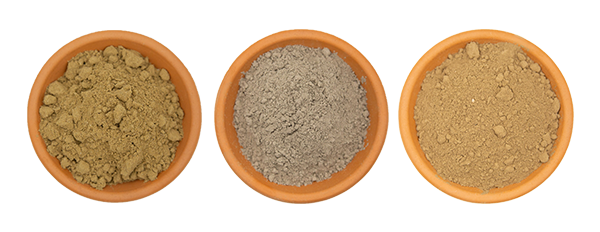Athena - The Perfect Run
Athena® exists to support the modern grower, no matter the scale. Our core principle is to formulate products that improve quality, reduce costs and drive consistency. Athena® was born in the grow rooms of Los Angeles, California, where we are always in pursuit of the perfect run. As the weight of being a cultivator increases, we exist to make the complex simple.
Discover the latest product line from Athena's premium partners today, only from Hydro Experts:
- Athena Pro: Athena Pro Grow, Athena Pro Core, Athena Pro Bloom
- Athena Blended: Athena Blended Grow A & B, Athena Blended CaMg, Athena Blended PK, Athena Blended Bloom A & B
- Athena IPM: Athena IPM
- Athena Culture: Athena Tissue Culture Kit, Athena Roots Culture Media, Athena Shoots CUlture MEdia, Athena VPDome.etc.
- Athena Foliar (coming soon)
- Athena Clean (coming soon)
Why Choose Athena Nutrient?
Discover the reasons to choose Athena Nutrient for your cultivation needs:
-
Quality Enhancement
Our products are meticulously formulated to enhance the quality of your crops. From nutrients to growth boosters, we spare no effort in ensuring your plants receive the best care.
-
Cost Reduction
Athena Nutrient understands the significance of cost-effective cultivation. Our solutions are designed to optimize resources, enabling you to achieve more while spending less.
-
Consistency Assured
In the world of cultivation, consistency is paramount. With Athena Nutrient products, you can expect reliable results every time, regardless of your operation's size.
Q: What sets Athena Nutrient apart from other brands?
A: Athena Nutrient's commitment to quality, cost efficiency, and consistency is unmatched. Our products are the result of extensive research and development, making them the top choice for growers.
Q: Can Athena Nutrient products be used for both small-scale and large-scale cultivation?
A: Absolutely! Athena Nutrient caters to growers of all scales. Whether you're a hobbyist or a commercial cultivator, our products are tailored to meet your unique needs.
Q: What is Fade and how do I use it?
A: Fade is a nitrogen-free finishing flush designed to provide your plants with essential immobile nutrients during the crucial ripening stage, preventing nutrient deficiencies and starvation. Our extensive testing has demonstrated that incorporating Fade alongside Pro Bloom in the final two weeks of the flowering phase can significantly enhance total cannabinoid and terpene production while minimizing the risk of deficiencies and bud rot.
Traditional flushing methods typically involve using only RO (Reverse Osmosis) water for one or more weeks, gradually reducing the use of a complete nutrient solution, or a combination of these approaches. Some growers have experimented with reducing nitrogen levels during the flush by adjusting the Core to Bloom ratio towards the end of the flowering period. This nitrogen reduction has been found to boost cannabinoid and terpene production. However, excessive reduction of Core not only reduces nitrogen but also eliminates other immobile nutrients such as calcium.
These traditional methods can lead to the depletion of essential crop nutrients, including calcium and micronutrients, ultimately impacting overall yield and potentially causing bud rot. To address the limitations of these approaches, we developed Fade.
Using Athena Fade is straightforward. Simply substitute Core with Fade during the final two weeks of the flowering cycle, maintaining the same dosage rate as the Core concentrate (mixed at 2 pounds per gallon). It's essential to recalibrate the pH since Fade is slightly more acidic than Core.
Experience the benefits of Fade and maximize your plant's potential during the critical ripening stage.
Q: Why are my pH and EC fluctuating?
A: The pH level of your fertilizer may vary due to various factors, including the type of fertilizer you use, the quality of the water you mix it with, and the environmental temperature.
One potential reason for pH fluctuations is the chemical composition of the fertilizer. Some fertilizers may possess acidic or alkaline properties that can influence the pH of the solution when combined with water. Furthermore, certain fertilizers may react with water to produce acidic or alkaline compounds, which can also impact the pH.
Another factor contributing to pH variations is the quality of the water you employ. If the water has a high or low pH, it can alter the overall pH of the fertilizer mixture. Water with a high pH (alkaline) can counteract acidic components in the fertilizer, whereas water with a low pH (acidic) can make the solution more acidic.
Temperature can also be a contributing factor in pH fluctuations. Excessive heat or cold in the fertilizer mixture can lead to pH changes due to chemical reactions or alterations in solubility.
To prevent pH fluctuations, it's essential to regularly monitor the pH of your fertilizer mixture and make necessary adjustments. You can utilize pH testing strips or a pH meter, such as the Bluelab Ph pen, to assess the pH and make corrections by adding acidic or alkaline substances like vinegar or baking soda, respectively. Additionally, using high-quality water and maintaining a consistent mixing temperature are crucial to minimize pH fluctuations.
































